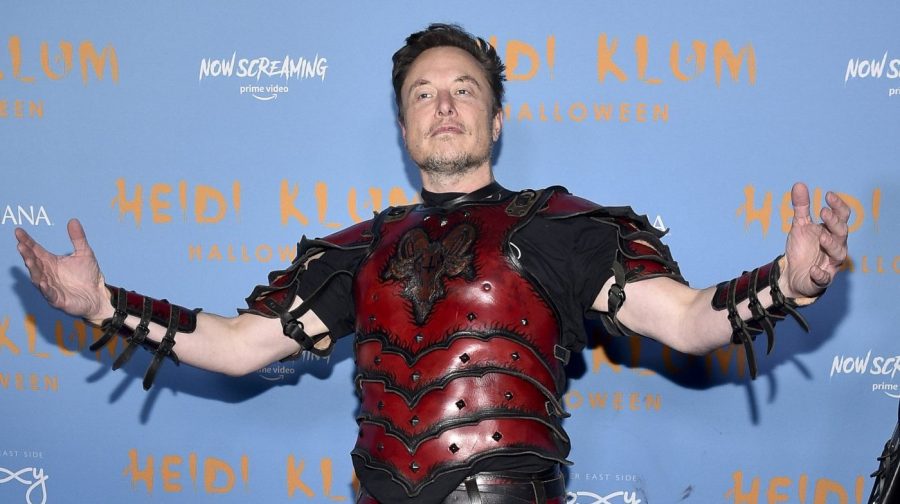
One detail about Elon Musk’s radical assault on the federal government that has struck a chord with many is the age of Musk’s associates.
Some are in the early 20s. One is 19, and goes by the name “Big Balls” on Twitter. Others have been reposting content from white nationalists. A 25-year old named Marko Elez apparently went too far by bragging on social media about being a racist who would never marry outside his ethnicity, and was forced to resign. (Vice President JD Vance wants the young man back on the job.)
They have been compared to the “whiz kids” of the Pentagon in the 1960s, the “best and the brightest” who brought us Vietnam. That’s not the right analogy. The whiz kids had degrees from the finest schools, and were mostly in their 30s and 40s. They were only young compared to the gray bureaucrats who typically presided over the Department of Defense.
What is happening now is best understood as an outburst of homegrown Maoism in America. The Cultural Revolution, announced by Chairman Mao in 1966, was led by cadres of enraged young people. They marched into universities and government offices and dragged out anyone suspected of bourgeois values or anti-revolutionary sentiments.
They didn’t care that removing those in charge of large institutions led to great suffering, even to the point of starvation. The chaos was the point. The old guard was so vile, such traitors to Mao and China, that extreme measures needed to be taken. Sound familiar?
They used dehumanizing language, exactly like Musk and Trump do when they describe USAID employees as “radical lunatics” working at a “criminal organization.”
The young people of China’s Cultural Revolution had what Musk’s shock troops have: the crystalline pure certainty of the young and ignorant. Speaking as someone who was a passionate libertarian at age 20, I’m familiar with the intoxicating power of knowing that you have figured out what so many older people don’t get. In my case, it was exactly the same revelation as the Tech Bros shutting down USAID and terrorizing the Treasury: that government was almost entirely incompetent and borderline evil.
When you get to the ripe old age of 30 or 35, most of the time you have seen enough of the complexity of the world that you lose that revolutionary fire. You still believe things, but you know the truth is nuanced, and that most humans, institutions and ideologies are an imperfect mix of good and bad.
You usually don’t have the misplaced confidence to walk into a government office you may not have known existed a week prior, and start rudely interrogating people as old as your parents who have spent their careers working at that agency. You might not endorse plans to fire hundreds of them, furlough the rest and stop all the agency’s projects.
In the Chinese Cultural Revolution, 18-year olds did all that. They savagely beat their targets until they confessed to imaginary thought crimes. We’re not there yet, but the desire to humiliate those older, with their expertise and degrees, is the same. The arrogance of the Tech Bros is the same as the young Maoists of 60 years ago.
In the language of Silicon Valley, their youth and inexperience isn’t a bug, it’s a feature. It makes them more powerful and loyal, not subject to the doubts and constraints that older, more experienced people would be.
Those shaking our constitutional order may have never studied James Madison, the Constitution, checks and balances or how our government is supposed to work. So when pundits warn that this could break the system of the Founders, to them, that sounds like success. Like their leader, Musk, they imagine that expertise in one or two areas gives them universal competence in all areas.
The young in China leading the violent purges in the 1960s knew they were purer than the people they were persecuting because they had been raised entirely under Communism. They knew Maoist philosophy, like the Tech Bros know coding and venture capital.
And they have one more unbeatable Muskian-Trumpian argument against the aged bureaucrats they are abusing: money. If these folks are actually competent, why aren’t they rich? The poorest member of Musk’s as-yet unvetted and largely unknown team probably made more at SpaceX or Tesla last year than the most senior bureaucrat.
There’s a word for someone who makes $110,000 a year out in Silicon Valley: loser.
As Musk assails our government with a new target seemingly every day, remember that the young cadre around him are not worrying about destroying institutions. No one does in a cultural revolution.
Jeremy D. Mayer is an associate professor of policy and government at George Mason University, and coauthor of “The Changing Political South.”












